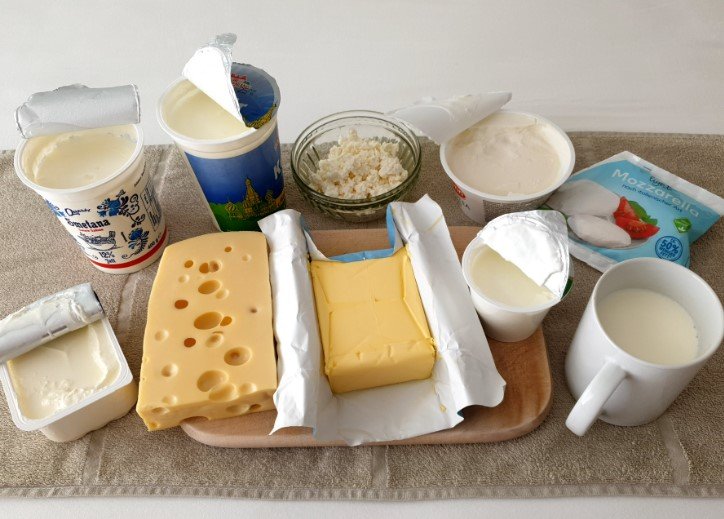A last-minute reversal by Egypt will spare UK dairy exporters from costly halal certification rules that were set to hit in January, removing a potential drag on trade worth hundreds of millions of pounds.
Costly Rule Pulled Before It Kicked In
The proposal had been simple in wording but heavy in impact — every dairy shipment from the UK to Egypt would require halal certification, regardless of whether the products were intended for Muslim consumers. That meant butter, cheese, and milk powders alike would have to pass through new religious compliance checks.
Industry groups warned the change could tack on around £1,000 in extra costs per shipment. For small exporters, those extra charges could have been enough to make Egyptian sales unviable.
Now, after talks between the Egyptian government and UK officials, the plan has been shelved. The UK Department for Business and Trade says the decision safeguards an estimated £250 million in potential export opportunities in the coming years.
Negotiations Behind Closed Doors
The U-turn didn’t happen in public view. According to officials familiar with the matter, conversations intensified over the past two months as UK diplomats, trade envoys, and agriculture industry representatives pressed their case in Cairo.
Sources said the UK side argued the requirement would place “unnecessary burdens” on trade, particularly given the high trust and existing health standards on UK dairy products.
Egypt, facing its own inflation pressures and food import challenges, eventually relented. “This is a win for both sides,” one trade source remarked. “Egypt still gets access to the UK’s premium dairy, and exporters avoid a tangle of new red tape.”
Why Halal Matters in Trade Policy
Halal certification is essential for many products in Muslim-majority markets, ensuring they comply with Islamic dietary laws. In meat exports, such requirements are standard. But dairy certification rules are less common — and applying them to all products, without exception, raised eyebrows in trade circles.
Had the plan gone ahead, the UK dairy sector would have been forced to adapt quickly. Exporters would need to hire certification bodies, train staff, and adjust supply chains. Some producers, particularly artisanal cheesemakers, might have been priced out entirely.

UK Dairy in Egypt — A Growing Market
While the UK’s dairy exports to Egypt are relatively small in absolute terms — worth around £26 million in 2024 — the market has been growing. Cheese leads the pack, with cheddar and specialty varieties finding a niche among Egyptian retailers and hotels. Butter and milk powders also make up a sizeable share.
Industry officials say Egypt is an attractive market for several reasons:
-
Rising middle-class demand for premium dairy products.
-
A strong tourism sector with high-end hospitality needs.
-
Egypt’s role as a potential re-export hub into other African and Middle Eastern countries.
Removing the looming certification hurdle, they argue, keeps that growth on track.
Global Trade Tensions in the Background
The timing of Egypt’s move is notable. Global trade is in a fragile state, with disputes, tariffs, and regulatory changes rippling across markets. The UK is already facing headwinds from tighter EU standards post-Brexit and has been working to strengthen bilateral deals elsewhere.
For Cairo, the decision may also reflect the realities of its own economy. Food inflation in Egypt has been stubbornly high, and keeping import channels open and affordable is politically sensitive. Adding layers of certification could have pushed up prices for consumers — something the government is keen to avoid.
Numbers That Tell the Story
Here’s what’s at stake in the Egypt–UK dairy trade:
| Metric | Value (2024) | Potential Impact of Rule |
|---|---|---|
| UK Dairy Exports to Egypt | £26 million | + £1,000 cost per shipment |
| Estimated Future Export Opportunity | £250 million | At risk |
| Most Popular UK Dairy in Egypt | Cheese, butter, milk powders | Increased compliance costs |
Even modest cost increases could have squeezed margins, particularly for smaller exporters working on tight profit lines.
Reaction from the Industry
Exporters welcomed the news but cautioned that regulatory surprises remain a constant risk in overseas markets. “It’s a relief,” said one UK cheese producer who sells to Egyptian hotels. “We were staring down the barrel of either raising prices or pulling out entirely. Now we can focus on growth instead of paperwork.”
Trade bodies echoed that view. The UK Dairy Exporters Association called the outcome “a testament to proactive diplomacy,” adding that open channels with importing nations are vital for avoiding future flashpoints.
The Road Ahead
For now, the Egyptian market remains open under existing standards. But exporters are mindful that trade rules can shift quickly, especially when politics, religion, and economics intersect.
One UK trade adviser put it bluntly: “This was a win, yes. But in international trade, there’s always another hurdle around the corner.”
Egypt’s reversal may encourage other markets to reconsider blanket halal certification for dairy, especially when existing safety and quality protocols already align with local standards. But the broader message is clear — exporters need to stay nimble, and governments need to keep talking.
